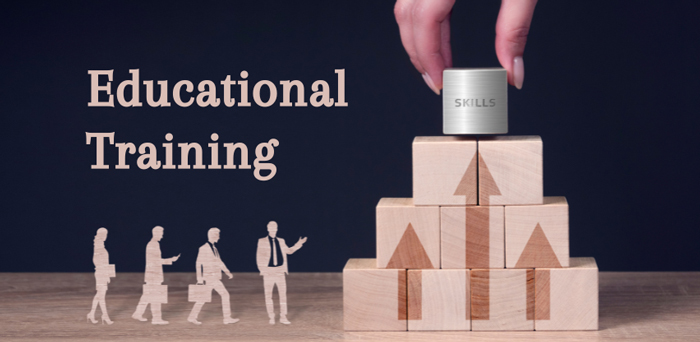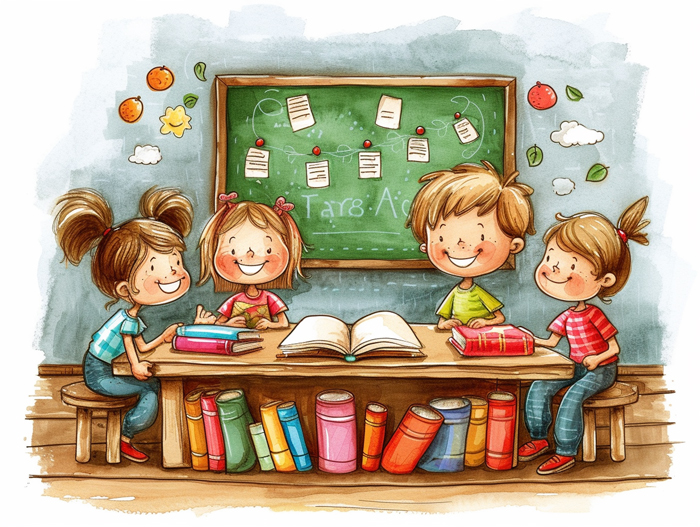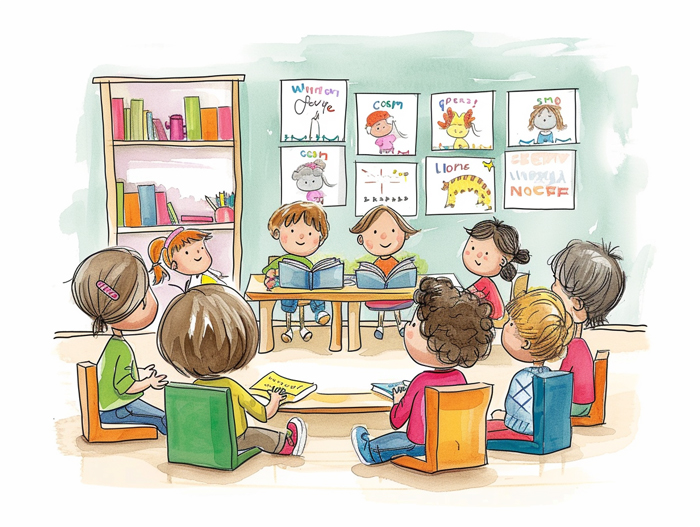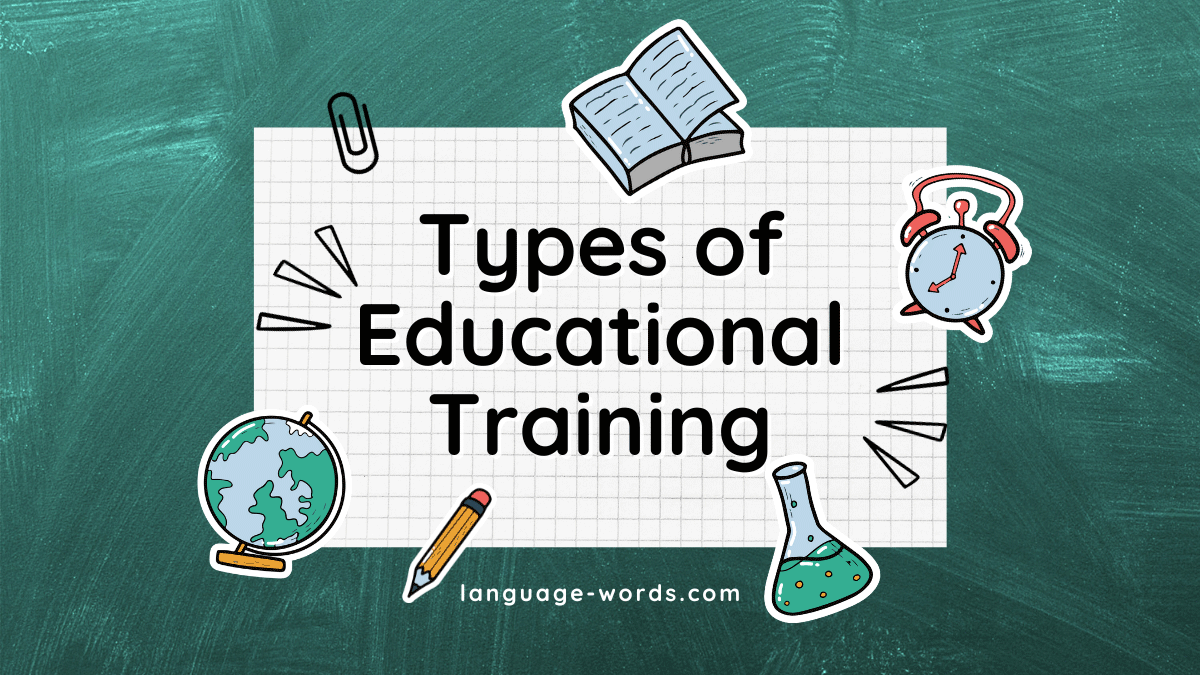What is Educational Training
When it comes to the field of education, educational training plays a crucial role. In this section, I’ll delve into what exactly educational training is and why it is important.
Educational training refers to the process of acquiring knowledge and developing skills in a specific area of education. It involves a structured approach that equips individuals with the necessary tools and techniques to excel in their chosen field. Whether it’s teaching, counseling, or educational administration, training provides the foundation for success.
One key aspect of educational training is professional development. As educators, we understand the importance of staying up-to-date with the latest advances and best practices in our field. Continuing education and training programs allow us to refine our teaching strategies, enhance our knowledge, and improve our overall performance.

Through educational training, we gain specialized knowledge in areas such as instructional methods, curriculum development, assessment techniques, and classroom management. This deep understanding of the principles and practices of education empowers us to create effective learning environments and support the diverse needs of our students.
Moreover, educational training enhances our ability to use educational technologies. With the rapid advancements in technology, integrating tools and resources into the classroom has become essential. Through training, we become proficient in utilizing these technologies to engage and inspire our students, making the learning process more interactive and dynamic.
Another important aspect of educational training is reflective practice. This involves critically analyzing our teaching methods, reflecting on our experiences, and continuously seeking ways to improve. Through self-reflection and professional discourse, we can identify areas for growth and implement changes that benefit both ourselves and our students.
Educational training is a fundamental part of the education system. It provides educators with the knowledge, skills, and tools necessary to excel in their chosen field. By continuously engaging in professional development, integrating educational technologies, and practicing self-reflection, we can ensure that we are delivering high-quality education to our students.
Definition of Educational Training
When it comes to learning, educational training plays a vital role in shaping the skills and expertise of educators like me. It refers to the process of gaining knowledge and improving one’s abilities in a specific area of education. As an experienced teacher, I understand the importance of continuous professional development through various types of training.

Educational training encompasses a wide range of activities that are designed to enhance teaching techniques, instructional methods, and overall classroom management. It goes beyond the basics of teaching and equips educators with specialized knowledge to excel in their chosen field.
In my experience, educational training covers a diverse range of topics, including:
- Instructional methods: This type of training focuses on strategies and techniques to deliver effective lessons, engage students, and promote active learning. It explores innovative teaching approaches and emphasizes the use of technology to enhance the learning experience.
- Curriculum development: Educational training equips educators with the skills to develop engaging and relevant curriculum materials. It involves designing instructional plans, selecting appropriate learning materials, and aligning the curriculum with educational standards.
- Assessment techniques: Assessing students’ progress and understanding is an important aspect of teaching. Educational training provides guidance on creating effective assessments, interpreting results, and using assessment data to tailor instruction to individual student needs.
- Classroom management: Maintaining a positive and productive learning environment is essential for student success. Educational training helps educators develop effective classroom management strategies, including behavior management techniques, fostering a positive classroom culture, and implementing student-centered approaches.
Furthermore, educational training encourages educators to embrace reflective practices, such as self-evaluation and professional growth. It emphasizes the importance of continuously seeking out new knowledge and staying up-to-date with the latest trends and developments in the field of education.
Overall, educational training equips educators with the knowledge, skills, and tools necessary to provide high-quality education and meet the diverse needs of students. As a dedicated teacher, I consider ongoing professional development essential to my growth as an educator and to ensure that I am able to deliver the best possible education to my students.
Importance of Educational Training
As an educator, I understand the importance of continuous professional development and staying up-to-date with the latest trends in education. Educational training plays a vital role in enhancing our knowledge and skills, building our confidence, and increasing our employability. Let’s dive deeper into these three key benefits.

Enhances Knowledge and Skills
Educational training provides us with opportunities to learn new instructional methods, explore innovative curriculum development techniques, and improve our assessment strategies. It equips us with the knowledge and skills necessary to create engaging and effective learning experiences for our students. By staying informed about the latest research and best practices in education, we can continually refine our teaching approaches and ensure that we are providing our students with the highest quality education.
Builds Confidence
Through educational training, I have been able to gain a deeper understanding of educational theories and practical strategies. This knowledge has boosted my confidence in the classroom, enabling me to effectively navigate diverse learning environments and adapt my teaching methods to meet the unique needs of my students. The more confident I am in my abilities as an educator, the more I am able to inspire and motivate my students to reach their full potential.
Increases Employability
In today’s competitive job market, having up-to-date and relevant skills is crucial. Educational training enhances our employability by demonstrating our commitment to professional growth and development. It showcases our willingness to adapt to new technologies and methodologies, making us valuable assets to educational institutions. By investing in our own training and professional development, we are positioning ourselves for future career opportunities and advancement in the field of education.
Educational training is not just a one-time event, but an ongoing process. As educators, it is our responsibility to continuously seek out opportunities to expand our knowledge and refine our skills. By doing so, we not only benefit ourselves but also our students who rely on us to provide them with the best education possible.
Types of Educational Training
In the field of education, there are various types of training programs that educators can pursue to enhance their skills and knowledge. These training programs are designed to provide educators with the necessary tools and techniques to deliver high-quality education to their students. Let’s take a closer look at the different types of educational training available:

Formal Education
Formal education is the traditional pathway for educators to gain knowledge and skills in their chosen field. This type of training includes earning a degree or certification from a recognized educational institution. Some common examples of formal education for educators include:
- Bachelor’s degree in education: This degree program provides a comprehensive understanding of educational theories, instructional strategies, and classroom management techniques.
- Master’s degree in education: This advanced degree allows educators to specialize in a specific area of education, such as curriculum development or educational leadership.
Vocational Training
Vocational training focuses on providing practical skills and knowledge for specific professions. In the field of education, vocational training programs may focus on specialized areas such as early childhood education or special education. These programs typically offer hands-on training and real-world experiences, allowing educators to apply their skills directly in the classroom. Some examples of vocational training programs for educators include:
- Early childhood education training: This program equips educators with the skills and knowledge needed to work with young children, emphasizing child development and age-appropriate teaching techniques.
- Special education training: This training program focuses on working with students with special needs, providing strategies for inclusive classrooms and individualized education plans.
Professional Development
Professional development refers to ongoing training and education that educators pursue throughout their careers. It is a way for educators to stay up-to-date with the latest research, best practices, and technological advancements in education. Professional development can take various forms, including workshops, conferences, online courses, and collaborative learning opportunities. Some examples of professional development for educators include:
- Attending educational conferences: These events offer opportunities for educators to learn from experts in their field, explore new teaching approaches, and network with other professionals.
- Participating in online courses: Online platforms provide educators with convenient access to a wide range of courses covering various educational topics, allowing them to learn at their own pace.
On-the-Job Training
On-the-job training refers to learning and acquiring new skills while working in an educational setting. This type of training often involves mentorship and guidance from experienced educators or administrators. On-the-job training allows educators to apply their theoretical knowledge in real-world situations and learn from practical experiences. Some examples of on-the-job training for educators include:
- Learning from experienced colleagues: Educators can collaborate with more experienced colleagues to observe their teaching methods, seek advice, and learn from their expertise.
- Mentorship programs: These programs pair educators with mentors who provide guidance and support, helping them develop their teaching skills and navigate challenges in the classroom.
By engaging in these different types of educational training, educators can continuously enhance their knowledge, improve their skills, and provide the best possible education for their students.
Conclusion
Educational training plays a crucial role in the field of education, equipping educators with the knowledge, skills, and tools necessary to excel in their profession. It encompasses various areas such as instructional methods, curriculum development, assessment techniques, and classroom management. Through ongoing professional development, educators can stay up-to-date with the latest trends and advancements in education, ensuring that they provide the highest quality education to their students.
By participating in different types of educational training, such as formal education, vocational training, professional development, and on-the-job training, educators can enhance their knowledge and skills, build confidence, and increase their employability. These training programs offer opportunities to learn new instructional methods, explore innovative curriculum development techniques, and improve assessment strategies.
Moreover, educational training empowers educators to navigate diverse learning environments and adapt their teaching methods to meet the unique needs of their students. It also demonstrates their commitment to professional growth and development, showcasing their adaptability to new technologies and methodologies.
Educational training is an essential component of a successful career in education. It provides educators with the necessary tools and techniques to deliver high-quality education, positioning them for future career opportunities and advancement in the field.

